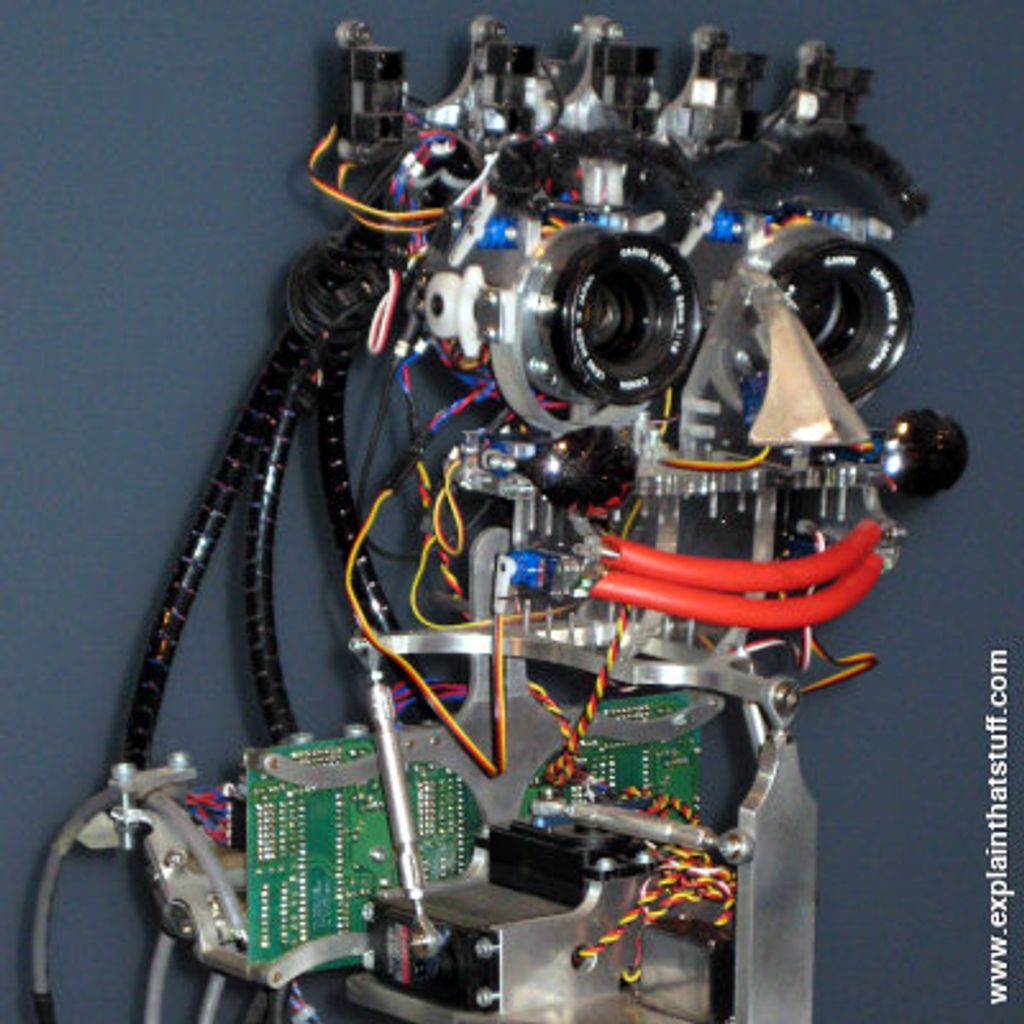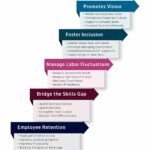In the rapidly advancing field of engineering, the role of artificial intelligence (AI) has become a topic of interest and concern. Many wonder if engineers will be replaced by AI in the future. This article explores the impact of AI on engineering jobs and the future of engineering with AI. Here are the key takeaways:
Key Takeaways
- AI is transforming various aspects of engineering, including design, simulation, manufacturing, automation, problem-solving, and optimization.
- While AI may automate repetitive tasks and enhance engineering workflows, it is unlikely to fully replace engineers.
- Engineers can collaborate with AI systems to leverage technology for more efficient and innovative software development.
- Upskilling and reskilling engineers with AI knowledge and skills will be crucial to adapt to the changing landscape.
- The integration of AI in engineering opens up new opportunities for innovation and advancements in the field.
The Role of AI in Engineering

AI in Design and Simulation
AI is revolutionizing the field of engineering, particularly in design and simulation. With the advancements in machine learning and deep learning algorithms, AI systems can now analyze vast amounts of data and gain insights that were once exclusive to human thinking. This has led to improved efficiency in various software engineering tasks. For example, AI-powered tools have made automated testing and debugging more efficient by rapidly identifying potential bugs and exceptions within code. This reduces the time and effort required for troubleshooting.
AI in Manufacturing and Automation
The era of digitization transformed the nature of manufacturing. While it optimized production processes and increased efficiency, it wasn’t so much about automating tasks, but rather, it was about revolutionizing them–leading to mass production and the rise of urban factory-based economies. Beginning in the 1950s, the digital revolution marked a significant technological and societal shift as computers, databases, and, later, the internet and mobile technology became increasingly prevalent. Once again, digitization fundamentally transformed our work, enabling automated production processes and…
AI in Problem Solving and Optimization
AI systems have greatly advanced problem-solving and optimization capabilities in engineering. With the ability to analyze vast amounts of data and recognize patterns, AI can quickly identify solutions and optimize processes. By leveraging AI algorithms, engineers can efficiently tackle complex problems and find innovative solutions. Additionally, AI can assist in optimizing resource allocation and improving efficiency in engineering workflows. The integration of AI in problem-solving and optimization not only enhances the capabilities of engineers but also opens up new possibilities for innovation and advancement in the field.
The Impact of AI on Engineering Jobs

Automation of Repetitive Tasks
Automation of repetitive tasks is one of the key areas where AI is making a significant impact in engineering. AI-powered tools and algorithms can automate tasks that are time-consuming and repetitive, allowing engineers to focus on more complex and creative aspects of their work. By automating these tasks, engineers can save valuable time and increase productivity. For example, AI can automate the process of generating code, performing simulations, and analyzing data, which are all tasks that can be time-consuming for engineers. This automation not only speeds up the engineering process but also reduces the risk of human error.
Enhancement of Engineering Workflows
As AI systems become more integrated into development processes, the responsibilities and skillsets of software engineers are shifting. AI can assist software engineers in automating routine tasks, allowing them to focus more on creative problem-solving and high-level design aspects of software development. By offloading mundane tasks to AI, software engineers can effectively address complex challenges and build innovative solutions. Collaboration between software engineers and AI systems is the key to unlocking the true potential of technology. While AI can offer valuable insights and improve efficiency, it is important for engineers to adapt and embrace new possibilities. The collaboration between software engineers and AI systems presents an exciting opportunity to leverage technology for more efficient and innovative software development. By harnessing the strengths of both human and machine intelligence, engineers can build better solutions and address increasingly complex challenges. With this in mind, software engineers will not be replaced by AI; rather, their roles will become more essential in navigating an AI-driven future.
Potential Job Displacement
The rise of AI in engineering has raised concerns about potential job displacement. While some experts believe that AI will lead to mass unemployment, others argue that it will result in a shift in the demand for different kinds of skills. According to the World Economic Forum’s Future of Jobs Report, technological change and adoption are the primary reasons for talent shortages or gaps. However, historical data suggests that worker displacement from automation has been offset by the creation of new jobs and the emergence of new occupations. It is important for leaders to provide opportunities for talent to interact with AI comfortably and position it as a valuable co-pilot rather than a threat.
The Future of Engineering with AI

Collaboration between Engineers and AI
As AI systems become more integrated into development processes, the responsibilities and skillsets of software engineers are shifting. AI can assist software engineers in automating routine tasks, allowing them to focus more on creative problem-solving and high-level design aspects of software development. By offloading mundane tasks to AI, software engineers can effectively address complex challenges and build innovative solutions. Collaboration between software engineers and AI systems is the key to unlocking the true potential of technology. While AI can offer valuable insights and assistance, it is important for engineers to maintain their expertise and continue to drive the development process. By working together, engineers and AI can create groundbreaking solutions that push the boundaries of what is possible in software development.
Upskilling and Reskilling Engineers
The rapid advancement of AI technology is reshaping the job market, creating a need for engineers to upskill and reskill in order to stay relevant. As AI systems become more sophisticated, engineers must acquire new skills and knowledge to effectively collaborate with AI. This includes gaining expertise in areas such as machine learning, data analysis, and algorithm development. By upskilling and reskilling, engineers can enhance their problem-solving abilities and adapt to the changing demands of the industry.
To support engineers in this process, organizations are offering various training programs and resources. These programs cover a wide range of topics, from technical skills to leadership development. For example, companies provide courses on technology skills to upskill engineers in emerging AI technologies. They also offer leadership and business skills training to help engineers transition into managerial roles and navigate the evolving landscape of AI-driven industries.
Upskilling and reskilling engineers is not only beneficial for their career growth but also for the overall advancement of the engineering field. By continuously learning and updating their skills, engineers can contribute to innovation and drive the development of AI technologies. This collaboration between engineers and AI systems has the potential to revolutionize various industries, from healthcare to transportation.
In summary, upskilling and reskilling engineers is essential in the era of AI. It enables engineers to adapt to the changing job market and collaborate effectively with AI systems. Through training programs and continuous learning, engineers can acquire the necessary skills to drive innovation and contribute to the advancement of AI-driven industries.
New Opportunities for Innovation
With the integration of AI in engineering, new opportunities for innovation are emerging. Engineers can leverage AI technologies to enhance their design and problem-solving capabilities. AI algorithms can analyze large amounts of data and identify patterns and insights that humans may overlook. This enables engineers to make more informed decisions and develop innovative solutions. Additionally, AI can automate repetitive tasks, freeing up engineers’ time to focus on more complex and creative aspects of their work. By collaborating with AI systems, engineers can explore new possibilities and push the boundaries of what is possible in engineering.
Conclusion
In conclusion, the rise of AI in software engineering does not mean that software engineers will be replaced by AI. Instead, their roles will become more essential in navigating an AI-driven future. By continuously upgrading their skills and staying informed about AI advancements, software engineers can position themselves at the forefront of technological innovation. The collaboration between software engineers and AI systems presents an exciting opportunity to leverage technology for more efficient and innovative software development. Embracing the future of AI in software engineering will lead to better solutions and address increasingly complex challenges.
Frequently Asked Questions
Will engineers be completely replaced by AI in the future?
No, engineers will not be completely replaced by AI. AI will enhance the capabilities of engineers and change the nature of their work, but human expertise will still be essential.
What are some examples of AI in engineering?
AI is used in various areas of engineering, such as design and simulation, manufacturing and automation, and problem solving and optimization.
Will AI automation lead to job displacement in the engineering field?
While AI automation may replace certain repetitive tasks, it will also create new opportunities and enhance engineering workflows. Job displacement may occur in some areas, but new roles and skills will also emerge.
How can engineers collaborate with AI?
Engineers can collaborate with AI systems by leveraging their capabilities in data analysis, pattern recognition, and optimization. This collaboration can lead to more efficient and innovative solutions.
Will engineers need to upskill or reskill to work with AI?
Yes, engineers will need to upskill and reskill to adapt to the changing demands of AI in engineering. This may involve learning new tools, technologies, and methodologies.
What are the new opportunities for innovation in engineering with AI?
AI opens up new possibilities for innovation in engineering, such as the development of intelligent systems, predictive maintenance, and autonomous vehicles. Engineers can leverage AI to create novel solutions to complex problems.




